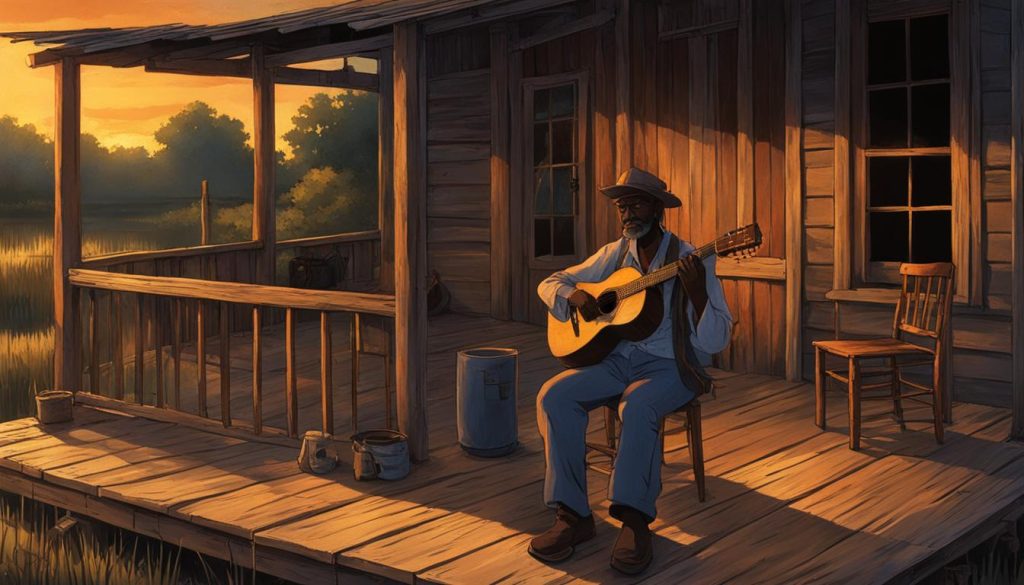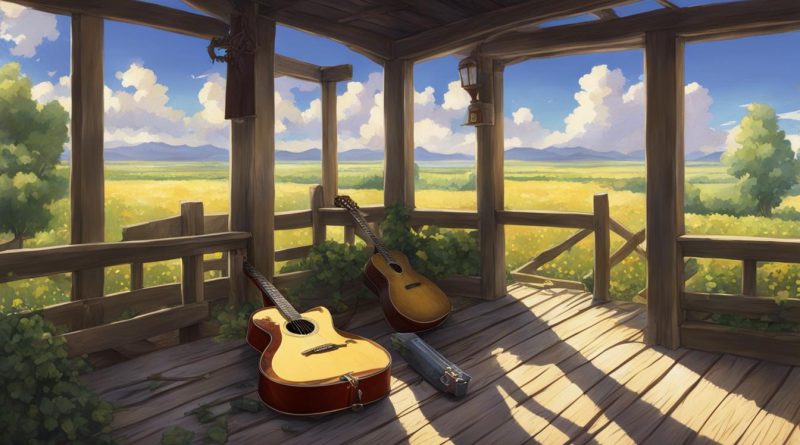Exploring the Roots and Influence of the Blues
The blues is a timeless musical genre that has captivated audiences for over a century. It has endured the test of time and continues to be a significant influence on modern music. This article will delve into the historical origins of the blues and examine its cultural impact on American society.
Key Takeaways
- The blues is a timeless musical genre with roots in African American music traditions.
- The blues emerged from slavery, field hollers, and work songs, and evolved into the Delta blues.
- The blues served as a form of social expression, addressing racial segregation and connecting to the civil rights movement.
- The blues has had a significant cultural impact on American society and continues to influence modern music to this day.
- Exploring the roots and influence of the blues reveals a poignant musical heritage that continues to resonate with audiences worldwide.
The Origins of the Blues: Tracing the Roots of a Musical Genre
The blues genre has its roots deeply embedded in African American music traditions. The influence of slavery, field hollers, work songs, and the emergence of the Delta blues all played a significant role in shaping this unique musical style.
The tradition of African American music began during the era of slavery in America. Enslaved Africans were denied access to formal music education and musical instruments, forcing them to create their music using their voices and handmade instruments. The field hollers and work songs they created reflected their daily lives, serving as a form of communication and a way to pass the time.
After the abolition of slavery, African American musicians began to experiment with the sounds they created, incorporating elements of Western music and classical instruments to create a new sound. This sound became known as the Delta blues, characterized by its raw emotional power and soulful melodies.

“What emerged from the Delta was an entirely new sound that blended contemporary folk, European classical music, and the African melodies and rhythms that had been brought over by the slaves.”
The Evolution of the Delta Blues
The Delta blues continued to evolve throughout the early 20th century, with many artists adding their unique sound and style to the genre. Influential Delta blues musicians, such as Robert Johnson and Muddy Waters, became known for their haunting lyrics and powerful guitar playing.
As the Delta blues gained popularity, it began to influence other forms of music, including rock and roll, country, and even jazz. The genre’s unique sound and cultural significance continue to be celebrated today, with numerous musicians paying tribute to the Delta blues in their music.
The Cultural Impact of the Blues: America’s Poignant Musical Heritage
The blues, with its raw and emotive sound, has had an immense impact on American culture, serving as a form of social expression and protest against racial segregation and inequality. Emerging from the African American music traditions, the blues became a voice for those who were silenced, incorporating themes of pain, struggle, and hope in its lyrics and melodies.
The civil rights movement of the 1960s saw a surge in blues music, with artists like B.B. King and Etta James using their music to shed light on the injustices of the time. The blues became a rallying cry for change, inspiring people from all walks of life to come together and fight for equal rights.
Today, the blues has evolved into modern blues, with artists like Gary Clark Jr. and Fantastic Negrito mixing traditional blues with contemporary styles, creating a sound that reflects the changing cultural landscape of America.
“The blues is an expression of anger against shame and humiliation.”

The Blues and Social Expression
The blues was more than just a musical genre; it was a means of social expression for African Americans who were marginalized and discriminated against. The lyrics of blues songs addressed issues such as poverty, violence, and injustice, giving voice to those who were often unheard.
Blues legend Robert Johnson’s lyrics, “I went to the crossroad, fell down on my knees, asking the Lord above, have mercy, save poor Bob, if you please,” reflect the desperation and hopelessness felt by many African Americans during his time.
The Blues and Racial Segregation
Racial segregation was a deeply ingrained part of American society, and it was through the blues that African Americans were able to express the pain and frustration of this inequality. Songs like Billie Holiday’s “Strange Fruit,” which describes the lynching of black people, brought attention to the brutal realities of life under segregation.
The Blues and the Civil Rights Movement
The civil rights movement of the 1960s brought about significant change in American society, and the blues played a key role in this movement. Blues artists like Nina Simone and Muddy Waters sang about the need for change and inspired others to fight against racism and injustice. The 1965 album “The Sound of the Protest in the USA” featured blues music alongside other protest songs, showcasing the power of music as a tool for social change.
Conclusion
After exploring the historical roots and cultural impact of the blues, it is clear that this musical genre holds significant importance in American history and society. The origins of the blues can be traced back to African American musical traditions, including the influence of slavery, field hollers, work songs, and the emergence of the Delta blues.
Furthermore, the blues served as a form of social expression, addressing racial segregation and playing a significant role in the civil rights movement. Today, modern blues continues to honor and expand upon this poignant musical heritage.
In conclusion, the blues is a unique and powerful musical genre that continues to resonate with audiences worldwide. Its significance cannot be understated, as it represents a rich cultural history and ongoing social commentary through music.
FAQ
What is the origin of the blues?
The blues originated from African American music traditions, with influences from slavery, field hollers, work songs, and the emergence of the Delta blues.
How did the blues impact American society?
The blues played a significant role as a form of social expression, addressing racial segregation, and connecting to the civil rights movement. It continues to evolve into modern blues music.
Why is the blues considered a powerful musical genre?
The blues is a unique and powerful musical genre due to its historical roots, cultural significance, and its ability to resonate with audiences worldwide.
How does the blues relate to African American music traditions?
The blues has strong ties to African American music traditions, drawing inspiration from slavery, field hollers, work songs, and the development of the Delta blues.
What role did the blues play in addressing racial segregation?
The blues served as a powerful form of social expression, highlighting the injustices of racial segregation and contributing to the fight for civil rights.
How has the blues evolved into modern blues music?
The blues has gone through various transformations, blending with other genres and styles, resulting in the creation of modern blues music that continues to captivate audiences.
What is the cultural significance of the blues?
The blues holds immense cultural significance as it represents America’s poignant musical heritage and offers a glimpse into the experiences and emotions of a marginalized community.
Why is the blues still relevant today?
The blues remains relevant because of its universal themes and its capacity to connect with and evoke powerful emotions in listeners of all backgrounds.
Can the blues be considered a form of art?
Yes, the blues is widely recognized as a form of artistic expression, showcasing the creativity, emotions, and storytelling abilities of its performers.
